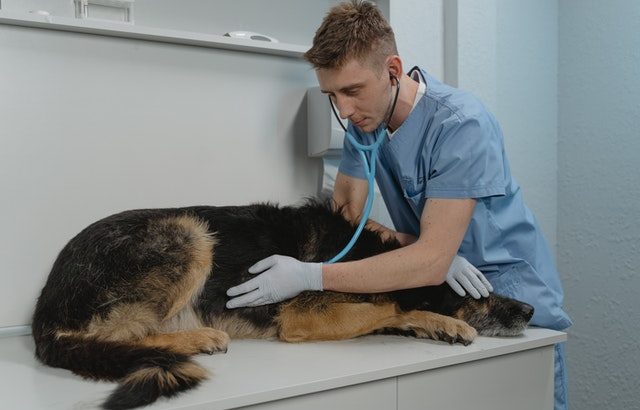7 Common Types of Veterinary Clinics
Statistics from the American Veterinary Medical Association (AVMA) indicate there are over 73,000 licensed veterinarians practicing in the United States. After earning a Doctorate of Veterinary Medicine (DVM), they seek employment at a veterinary clinic where they provide essential medical services to animals. Not all veterinary clinics are the same, however. Below are seven common types of veterinary clinics.
#1) Small Pet
The most common type of veterinary clinic is small pet. Small pet veterinary clinics are those that serve dogs, cats, guinea pigs, hamsters, birds and other small pets. They are also known as companion animal veterinary clinics.
A companion animal is simply a small pet. If an owner discovers that his or her small pet is injured or sick, the owner may schedule an appointment at a small pet veterinary clinic. Small pet veterinary clinics are operated by licensed veterinarians who are trained to diagnose and treat a wide range of medical conditions in small pets
#2) Exotic Animal
Some veterinary clinics specialize in exotic animals. Known as exotic animal veterinary clinics, they are staffed by licensed veterinarians with the necessary skills and experience to treat exotic animals.
What is an exotic animal exactly? While there’s no universal definition for the term, exotic animals typically consist of bearded dragons, parrots, snakes, turtles, frogs and salamanders. Exotic animals have a unique anatomy that’s starkly different from small pets, which is why there are veterinary clinics that specialize in them.
#3) Outpatient
An outpatient veterinary clinic is a type of veterinary facility where all animals are released before the end of the day. It’s similar to a hospital’s outpatient clinic. Hospitals — the kind for humans and not animals — often have a branch consisting of an outpatient clinic. Sick or injured patients can receive treatment at an outpatient clinic, but they won’t be able to stay overnight. Outpatient veterinary clinics share this same characteristic. They treat animals during the day but don’t keep them overnight.
Small pet veterinary clinics are often considered outpatient clinics. If a small pet veterinary clinic doesn’t board or otherwise keep animals overnight, it’s an outpatient clinic. Those that do keep animals overnight, however, are not at outpatient clinics.
#4) Emergency
There are also emergency veterinary clinics. An emergency veterinary clinic is essentially an emergency hospital for animals. They typically operate 24 hours a day, seven days a week, while offering emergency medical care for animals.
Emergency veterinary clinics offer life-saving and urgent medical treatment to animals in need. Animals can experience medical emergencies. If an animal is sick or injured during the nighttime hours when traditional veterinarian clinics are closed, the owner may take the animal to an emergency veterinary clinic.

#5) Mobile
Mobile veterinary clinics have become more common in recent years. Mobile veterinary clinics are essentially clinics on wheels. They consist of large vans that are fitted with veterinary equipment and supplies. Mobile veterinarian clinics are still operated by licensed veterinarians. The difference is that mobile veterinary clinics can move around, whereas other veterinary clinics remain in a single, stationary location at all times.
In terms of convenience, mobile veterinarians offer a superior level of service. They can drive to the homes, farms or other places where a sick or injured animal is located. Owners won’t have to take their pet to a traditional veterinary clinic. If their pet is sick or injured, they can call a mobile veterinary clinic to request medical service. The mobile veterinary clinic will drive to the owner’s location to treat his or her animal.
#6) Specialty
You’ll find specialty veterinary clinics as well. A specialty veterinary clinic, as the name suggests, is a clinic where board-certified veterinary specialists practice. These veterinary specialists underdo specialized education and training in a particular field of veterinary medicine.
All veterinary specialists are board certified. According to the AVMA, there are currently over 16,500 board-certified veterinary specialists. While some of them work at traditional veterinary clinics, many of them work at a specialty clinic. A specialty veterinary clinic is simply a clinic that specialized in one of the AVMA’s recognized specialties. They are operated by veterinarians who are board certified in the respective AVMA’s recognized specialty.
Some of the different types of specialty veterinary clinics include the following:
- Shelter medicine
- Epidemiology
- Small animal surgery
- Large animal surgery
- Swine
- Cardiology
- Virology
- Parasitology
- Bacteriology
- Immunology
#7) Imaging
While not as common as the others listed here, some veterinary clinics offer imaging services. Imaging veterinary clinics are those that offer diagnostic imaging services for animals. Common types of imaging services include digital radiography, computerized tomography (CT), ultrasound and magnetic resonance imaging (MRI).
Traditional veterinary clinics typically lack the equipment needed to perform imaging services. Animals in need of imaging services are referred to an imaging veterinary clinic. Imaging veterinary clinics can provide a range of imaging service, which can prove essential when diagnosing diseases and injuries.

